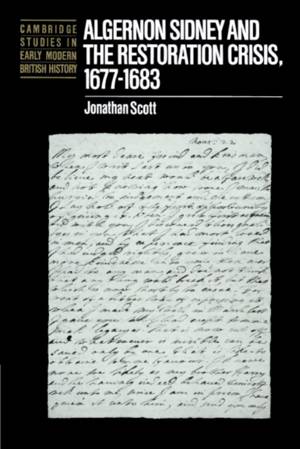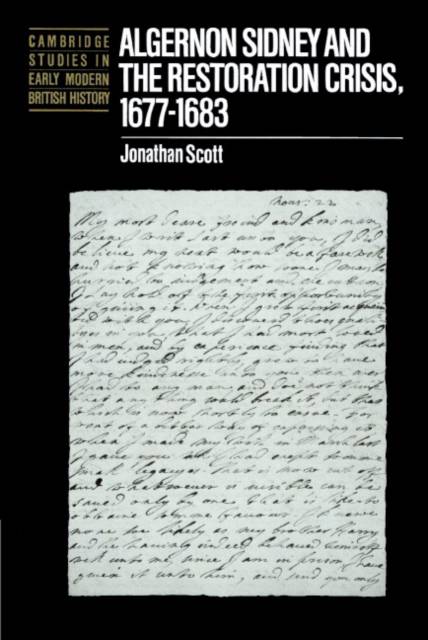
- Afhalen na 1 uur in een winkel met voorraad
- Gratis thuislevering in België vanaf € 30
- Ruim aanbod met 7 miljoen producten
- Afhalen na 1 uur in een winkel met voorraad
- Gratis thuislevering in België vanaf € 30
- Ruim aanbod met 7 miljoen producten
Zoeken
Algernon Sidney and the Restoration Crisis, 1677 1683
Jonathan Scott
€ 80,95
+ 161 punten
Uitvoering
Omschrijving
This book completes the study of the life and political thought of Algernon Sidney (1623-1683), which began with Algernon Sidney and the English Republic, 1623-1677 (1988). In the process it offers a reinterpretation of the major political crisis of Charles II's reign, and of its European and seventeenth-century contexts. Like its predecessor, the book spans the disciplines of intellectual and political history. Its twin focus is the last six years of Sidney's life, which culminated in the famous public drama of his trial and execution for treason in 1683, and in his major political work, the Discourses Concerning Government, which was used as evidence against him at the trial. This intertwining of events and ideas calls for an examination of the relationship between the practical and intellectual aspects of the crisis of 1678-1683 in general.
Specificaties
Betrokkenen
- Auteur(s):
- Uitgeverij:
Inhoud
- Aantal bladzijden:
- 408
- Taal:
- Engels
- Reeks:
Eigenschappen
- Productcode (EAN):
- 9780521893381
- Verschijningsdatum:
- 2/05/2002
- Uitvoering:
- Paperback
- Formaat:
- Trade paperback (VS)
- Afmetingen:
- 157 mm x 232 mm
- Gewicht:
- 666 g

Alleen bij Standaard Boekhandel
+ 161 punten op je klantenkaart van Standaard Boekhandel
Beoordelingen
We publiceren alleen reviews die voldoen aan de voorwaarden voor reviews. Bekijk onze voorwaarden voor reviews.











